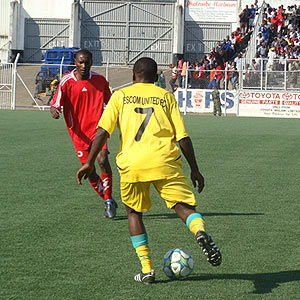Malawi will not abolish the death penalty from its laws, Ministry of Justice and Constitutional Affairs Principal Secretary and Solicitor General Banda told United Nation Human Rights Council on Wednesday.
Banda said when formally presented the responses to the committee’s question of whether the country had plans to ratify the Second Optional Protocol to the [International Covenant on Civil and Politcal Rights] ICCPR by amending the Penal Code in order to formally abolish the death penalty.
She Said Malawi retains the death penalty and, as such, has no intentions to ratify the Ooptional Protocol to the ICCPR.
“There are no immediate plans of abolishing the death penalty. Malawian courts still impose death penalties on persons convicted of murder,” reads a response.
“Since the dawn to multiparty system of government, no person sentenced to death has been officially executed. As at early June 2014, there are 29 people on death row at Zomba Central Prison.”
In 2011, the then Attorney General Justice Jane Ansah also told UN that the country will continue to listen to the voices of the people of Malawi regarding the issue of the death penalty.
Ansah said when decidiing to ratify international insturments, Malawi is sguided by its constitutional requirements.
Murder, treason and armed robbery are punishable by hanging in Malawi but the coutnry has not carried out an execution since 1992, and it is therefore believed to have a policy or established practice of de facto abolition.
In 2007, the High Court ruled that the automatic nature of the death penalty in Malawi for murder and other offences violated the right to life, amounted to inhuman punishment as it did not provide the individuals concerned with an opportunity to mitigate their death sentences.
Chief State Advocate Pacharo Kayira told the committee that the High Court of Malawi has only meted death penalty on Jack Bandawe after considering the gruesome killing of the victim.
The European Union (EU) has been calling for the universal abolition of death penalty, stressing that countries still conducting executions must abolish this “cruel and inhuman punishment.”
Britain, which is Malawi’s largest bilateral donor, also urged Malawi to abolish capital punishment.
The influential Roman Catholic Church, other prominent Christian churches and rights groups have also yearned for the death penalty to be abolished, generating a heated debate over the years.
Former president Bakili Muluzi, who ruled Malawi from 1994 to 2004 following the coutnry’s 1st democratic elections, vowed that he would “never sign a death sentence against a fellow human being” during his rule.
Muluzi was credited for improving human rights after 3 decades of late Kamuzu Banda’s absolute dictatorship under which rights were seriously abused.
Former presidents late Bingu wa Mutharika and Joyce Banda did also not sign a death warrant.
Subscribe to our Youtube Channel: 

.jpeg&w=60&q=100&h=60)








